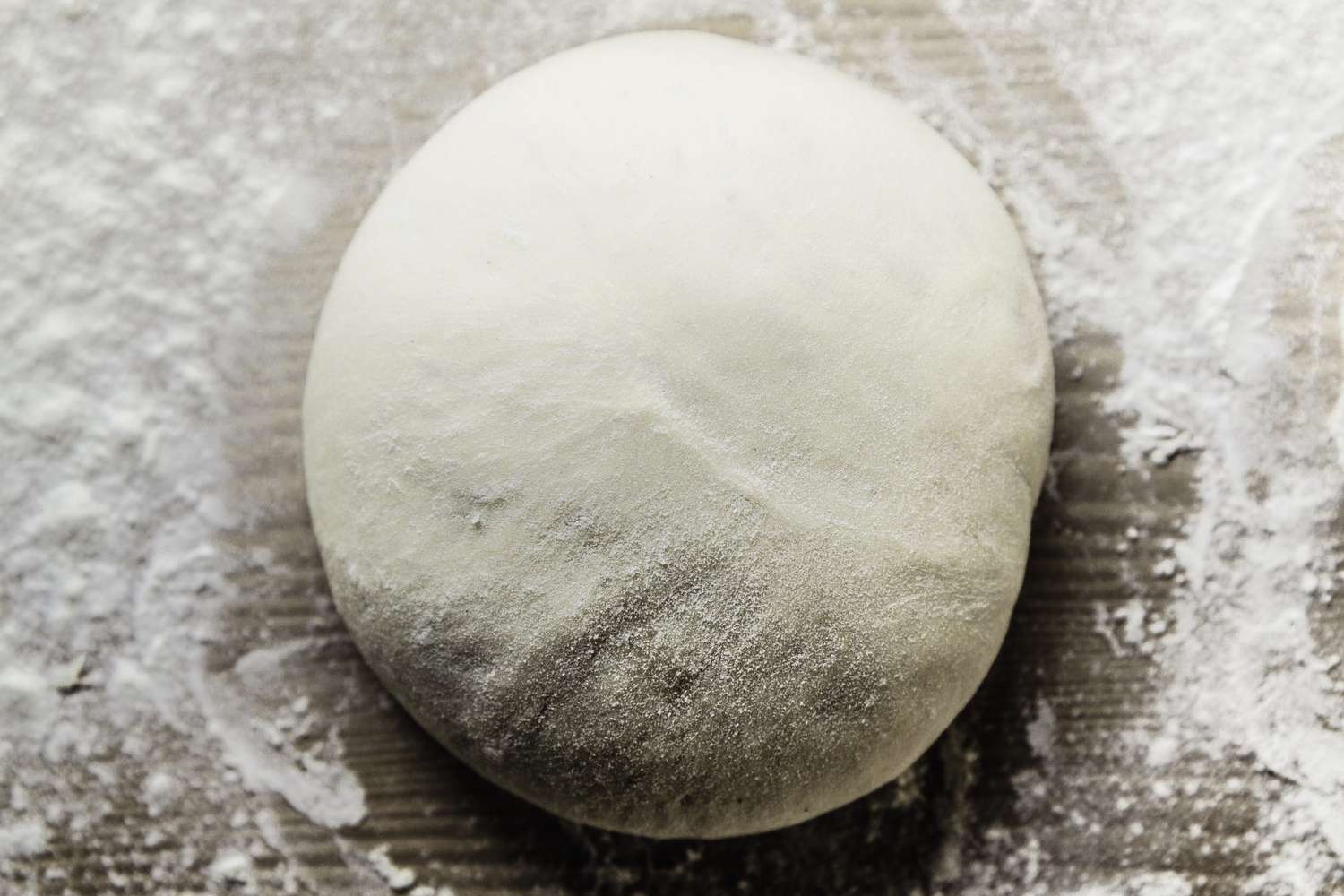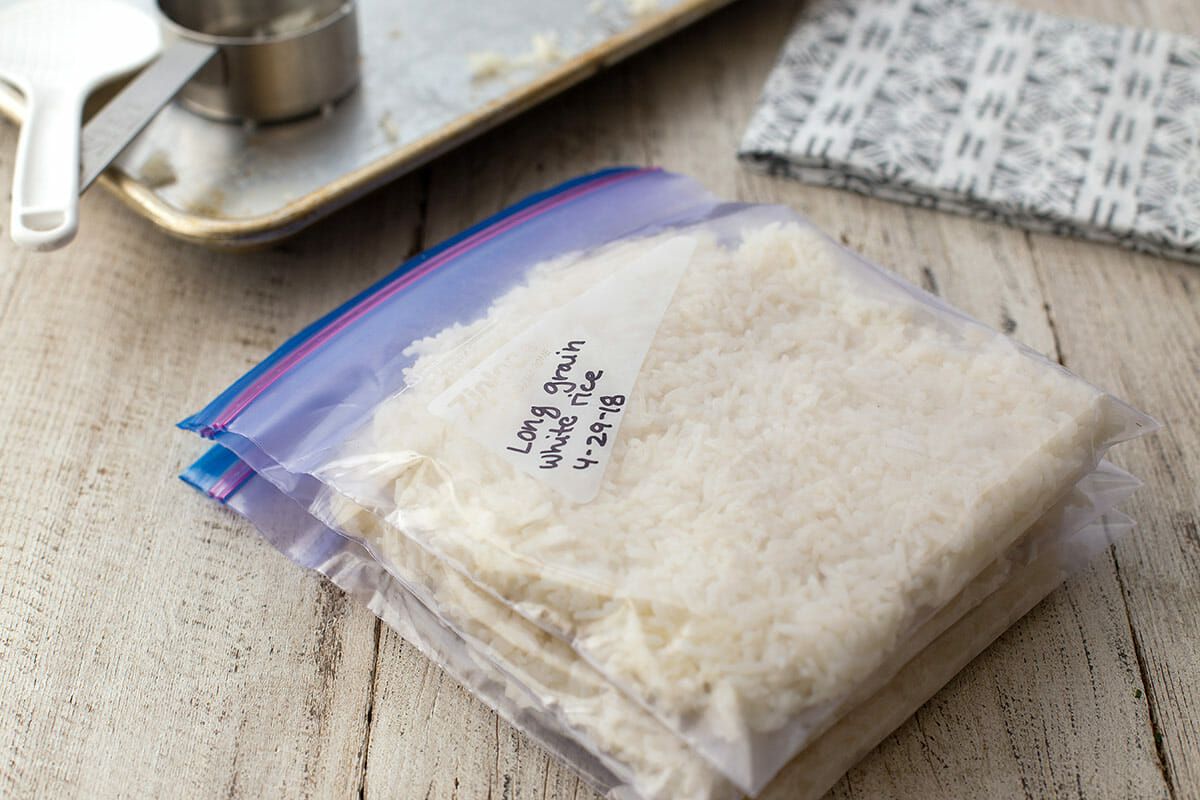

Articles
How Long Does Pizza Dough Last In The Freezer
Modified: October 20, 2024
Discover articles discussing the longevity of pizza dough in the freezer. Learn how long it can last and tips for preserving its freshness.
(Many of the links in this article redirect to a specific reviewed product. Your purchase of these products through affiliate links helps to generate commission for Storables.com, at no extra cost. Learn more)
Introduction
Welcome to the delicious world of homemade pizza! Whether you’re a seasoned pizza lover or just starting to dabble in the art of pizza making, one question that often arises is: How long does pizza dough last in the freezer?
Freezing pizza dough is a convenient way to have it readily available whenever you crave a delicious slice of pizza. But it’s important to know the proper techniques for storing and thawing frozen pizza dough to ensure the best results.
In this article, we will explore the factors that affect the lifespan of pizza dough in the freezer and provide you with valuable tips on how to maximize its shelf life. So, grab your apron and get ready to dive into the world of perfectly preserved pizza dough!
Key Takeaways:
- Enjoy homemade pizza anytime by freezing dough properly. Quality ingredients, proper packaging, and consistent freezer temperature are key to preserving taste and texture.
- Thaw frozen pizza dough in the refrigerator for best results. Plan ahead, allow time to rise, and get creative with toppings for a delicious homemade pizza experience.
Overview of Pizza Dough Storage
When it comes to storing pizza dough, the freezer is your best friend. Freezing pizza dough not only extends its shelf life but also conveniently allows you to have homemade pizza at your fingertips whenever a pizza craving strikes.
Pizza dough is a versatile ingredient that can be made in advance and stored in the freezer for future use. By freezing the dough, you can save time and effort, as you won’t have to make it from scratch every time you want to enjoy a homemade pizza.
The key to successfully storing pizza dough in the freezer lies in proper packaging and sealing techniques. When done correctly, frozen pizza dough can last for several months without compromising its taste and quality.
By understanding the factors that affect the lifespan of pizza dough in the freezer and following the right storage practices, you can ensure that your frozen dough is always ready to be transformed into a delicious pizza whenever you’re in the mood for a slice.
Now, let’s delve into the factors that can influence how long pizza dough can last in the freezer.
Factors Affecting the Lifespan of Pizza Dough in the Freezer
Several factors can influence how long pizza dough can last in the freezer. Understanding these factors will help you make informed decisions about the storage and usage of your frozen dough.
1. Quality of Ingredients
The quality of the ingredients used to make the pizza dough can impact its lifespan in the freezer. Fresh and high-quality ingredients, such as flour, yeast, and water, can yield a dough that freezes well and maintains its texture and taste for longer periods.
2. Proper Packaging
The way you package and seal your pizza dough before freezing is crucial. To prevent freezer burn and maintain the dough’s freshness, wrap it tightly in plastic wrap or place it in an airtight freezer bag. Proper packaging helps to prevent moisture loss and freezer odors from affecting the dough.
Read more: How Long Do Pizzas Last In The Freezer
3. Freezer Temperature and Consistency
The temperature and consistency of your freezer play a significant role in preserving the quality of the pizza dough. Set your freezer temperature to 0°F (-18°C) or below to ensure optimal storage conditions. Additionally, a consistent freezer temperature helps prevent thawing and refreezing cycles that can negatively impact the dough’s texture.
4. Duration of Freezing
The longer pizza dough remains in the freezer, the more its quality may deteriorate over time. To maintain the best texture and flavor, it’s recommended to use frozen pizza dough within 1-2 months. While it may still be safe to use beyond this timeframe, the dough’s quality may start to diminish.
5. Storage Container and Labeling
Choosing the right storage container can make a difference in how well your pizza dough freezes. Opt for sturdy containers that are freezer-safe and have tight-fitting lids to prevent air from entering. Additionally, labeling the container with the date of freezing can help you keep track of how long the dough has been in the freezer.
By considering these factors and implementing proper storage practices, you can maximize the lifespan of your pizza dough in the freezer and ensure that it remains delicious and ready to be transformed into a mouthwatering pizza.
Proper Way to Store Pizza Dough in the Freezer
When it comes to storing pizza dough in the freezer, following the right techniques is essential to maintain its texture, taste, and overall quality. Here’s a step-by-step guide on how to store pizza dough properly in the freezer:
Read more: How Long Do Pizza Rolls Last In The Freezer
1. Prepare the Dough
After preparing your pizza dough, let it rise until it doubles in size. Punch it down to release any excess air and divide it into individual portions or the size you prefer for your pizzas.
2. Wrap the Dough
Take each portion of the dough and shape it into a smooth ball. Wrap each ball tightly in plastic wrap, making sure to seal it completely. Alternatively, you can place them in individual airtight freezer bags.
3. Label and Date the Packages
It’s important to label each package with the current date before placing them in the freezer. This will help you keep track of how long the dough has been frozen and ensure that you use it within the recommended timeframe.
4. Arrange in Freezer
Place the wrapped dough balls or bags in a single layer on a baking sheet or tray. This will prevent them from sticking together and make it easier to select the desired amount of dough when needed. Once they are partially frozen, you can stack them for more efficient use of freezer space.
Read more: How Long Does Milk Last In The Freezer
5. Store at the Right Temperature
Set your freezer temperature to 0°F (-18°C) or below to maintain the quality of the pizza dough. Make sure your freezer maintains a consistent temperature to avoid thawing and refreezing, which can affect the dough’s texture.
6. Thaw Only What You Need
When you’re ready to use the dough, remove only the portion you need from the freezer. Allow the dough to thaw in the refrigerator overnight or at room temperature for a few hours. Avoid using a microwave or hot water to thaw the dough, as this can cause uneven thawing and affect the texture.
7. Use the Thawed Dough
Once the dough has thawed, it’s ready to be transformed into a delicious pizza. Roll it out, add your favorite toppings, and bake according to your preferred recipe.
Following these steps will ensure that your pizza dough stays fresh and maintains its quality during its time in the freezer. Now, you can have the convenience of having homemade pizza dough on hand whenever you need it!
How to Thaw Frozen Pizza Dough
Thawing frozen pizza dough properly is essential to maintain its texture and ensure a delicious homemade pizza. Here’s a step-by-step guide on how to thaw frozen pizza dough:
Read more: How Long Does Lasagna Last In The Freezer
1. Plan Ahead
Thawing pizza dough takes time, so it’s important to plan ahead and allow enough time for the dough to thaw properly. It’s best to thaw the dough in the refrigerator overnight for a slow and even thawing process.
2. Remove from the Freezer
Take the desired amount of frozen pizza dough out of the freezer. It’s important to only thaw the amount of dough you intend to use to avoid repeated thawing and refreezing.
3. Transfer to the Refrigerator
Place the frozen dough in a covered bowl or on a plate and transfer it to the refrigerator. Allow the dough to thaw slowly and evenly in the controlled temperature of the refrigerator. This process usually takes around 8-12 hours, depending on the size and thickness of the dough.
4. Check for Thawing
After several hours, check on the dough to see if it has fully thawed. Gently press the dough with your finger; if it springs back slightly and feels soft, it is likely fully thawed. If it feels hard and still frozen in the center, continue to let it thaw in the refrigerator.
Read more: How Long Does Coffee Last In Freezer
5. Bring to Room Temperature (Optional)
If you prefer to work with room temperature dough, you can let the partially thawed dough sit at room temperature for 15-30 minutes after it has thawed in the refrigerator. This will allow the dough to soften slightly and become more pliable for shaping.
6. Use as Desired
Once the dough has thawed, you can proceed to shape it into a pizza crust or any desired shape. Roll it out on a floured surface, add your favorite toppings, and bake according to your preferred recipe.
Remember, it’s important to avoid using a microwave or hot water to thaw pizza dough, as these methods can lead to uneven thawing and affect the dough’s texture. Thawing the dough slowly in the refrigerator is the best way to preserve its quality while bringing it back to its original state for a delicious homemade pizza.
Tips for Using Frozen Pizza Dough
Using frozen pizza dough allows for convenient and delicious homemade pizzas whenever you desire. To ensure the best results, here are some helpful tips for using frozen pizza dough:
1. Properly Label and Date
When storing pizza dough in the freezer, always label and date the packages. This helps you keep track of how long the dough has been frozen and ensures that you use it within the recommended timeframe.
Read more: How Long Does Avocado Last In The Freezer
2. Thaw in the Refrigerator
Thaw frozen pizza dough in the refrigerator for the best results. This slow and gentle thawing process helps maintain the texture of the dough and allows it to rise naturally. Avoid using quick thawing methods, such as microwaving or hot water, as they can result in uneven thawing and affect the dough’s quality.
3. Give It Time to Rise
Once the dough has thawed and shaped into the desired form, allow it to rise at room temperature for a second time. This step is crucial for achieving a light and fluffy pizza crust. Follow the recipe instructions for the recommended rise time.
4. Add Flour as Needed
As you work with the thawed dough, it may become sticky. Add flour as needed to prevent it from sticking to your hands or the work surface. However, be cautious not to add too much flour, as it can make the dough dry and affect its texture.
5. Customize Your Toppings
Frozen pizza dough provides a blank canvas for you to showcase your creativity. Experiment with various toppings, such as different cheeses, vegetables, meats, and sauces, to personalize your homemade pizza. Let your taste buds guide you in creating unique and flavorful combinations.
Read more: How Long Does Freezer Jam Last
6. Preheat Your Oven and Baking Surface
Before baking your pizza, ensure that your oven and baking surface, such as a pizza stone or baking sheet, are preheated properly. This helps to achieve a crispy and evenly cooked crust.
7. Follow Recipe Instructions
While using frozen pizza dough, always follow the recommended instructions provided in your chosen recipe. Each recipe may have specific guidelines for baking time, temperature, and other details to help you achieve the best results.
By following these tips, you can turn your frozen pizza dough into mouthwatering homemade pizzas that rival those from your favorite pizzerias. Get creative, have fun, and enjoy the delicious results!
Common Signs of Pizza Dough Spoilage
While properly stored and frozen pizza dough can last for several months, it’s important to be aware of the signs that indicate the dough may have spoiled. Here are some common signs of pizza dough spoilage to watch out for:
1. Foul Odor
If the pizza dough has a strong, unpleasant odor, it is a clear indication that it has gone bad. The smell may be sour, rancid, or moldy. Trust your senses and discard the dough if it emits a foul odor.
Read more: How Long Does Yogurt Last In The Freezer
2. Off-Color or Discoloration
Healthy pizza dough typically has a light, pale color. If you notice any discoloration, such as darkened spots or a greenish hue, it is a sign that the dough has been affected by mold or bacterial growth. In such cases, it is best to discard the dough.
3. Texture Changes
Take note of any significant changes in the texture of the pizza dough. If it feels excessively sticky, slimy, or has developed a gooey consistency, it may be a result of spoilage. Additionally, if you notice any lumps, clumps, or an uneven texture, it’s best to err on the side of caution and discard the dough.
4. Visible Signs of Mold
Mold growth on pizza dough is a clear sign that it is no longer safe to consume. Check the dough thoroughly for any visible signs of mold, including fuzzy patches or green, black, or white spots. If you spot mold, immediately discard the dough and do not attempt to salvage it.
5. Taste Test
If you suspect that your pizza dough may have spoiled, you can perform a small taste test. However, exercise caution when doing so. If the dough tastes off, sour, or has an unusual flavor, it is best to discard it to avoid any potential foodborne illnesses.
It’s important to note that spoilage can occur even when the dough has been stored properly. While frozen dough can have an extended shelf life, factors such as improper packaging, fluctuating temperatures, or extended thawing times can increase the risk of spoilage.
If you encounter any of these signs of spoilage, it’s best to prioritize your health and safety by disposing of the dough. It’s better to be cautious and start afresh with a new batch of pizza dough for a delicious and safe pizza-making experience.
Read more: How Long To Knead Pizza Dough In Mixer
Frequently Asked Questions about Pizza Dough Storage in the Freezer
Storing pizza dough in the freezer is a convenient way to have homemade pizza at your fingertips. Here are some commonly asked questions about pizza dough storage in the freezer:
1. How long can pizza dough be stored in the freezer?
Frozen pizza dough can be stored in the freezer for up to 2 months. While it may still be safe to use beyond this timeframe, the quality and taste may start to deteriorate.
2. Can homemade pizza dough be frozen?
Yes, homemade pizza dough can be frozen. Allow the dough to rise, shape it into balls or individual portions, wrap them tightly in plastic wrap or place them in airtight freezer bags, and freeze for future use.
3. Can you freeze store-bought pizza dough?
Store-bought pizza dough can also be frozen. Follow the same steps as with homemade pizza dough: wrap it tightly in plastic wrap or place it in an airtight container or freezer bag before freezing.
Read more: How To Make Pizza Dough For A Pizza Oven
4. Can you freeze pizza dough with toppings?
It is not recommended to freeze pizza dough with toppings already added. Toppings can become soggy and affect the quality of the dough. It’s best to freeze the dough separately and add the toppings when you’re ready to bake the pizza.
5. Can you freeze pizza dough after it has been baked?
While it is possible to freeze baked pizza dough, it is generally not recommended. The texture and taste of the dough may change after freezing and reheating. It’s best to freeze the dough before baking for optimal results.
6. Can you thaw and refreeze pizza dough?
It is not recommended to thaw and refreeze pizza dough. Thawing and refreezing can affect the quality, texture, and taste of the dough. It’s best to only thaw the amount of dough you intend to use to avoid repeated thawing and refreezing.
7. Can I freeze pizza dough in individual portions?
Yes, freezing pizza dough in individual portions is a convenient way to have the right amount of dough for each pizza. Divide the dough into individual portions, wrap each portion tightly, and freeze them separately for easy use.
Remember to always follow proper storage techniques, including wrapping the dough tightly, labeling and dating the packages, and maintaining a consistent freezer temperature, to ensure the best results when storing pizza dough in the freezer.
Conclusion
Storing pizza dough in the freezer is a game-changer for pizza lovers. With the proper techniques and storage practices, you can have homemade pizza whenever you crave it, without the hassle of making dough from scratch every time.
Throughout this article, we’ve explored the various aspects of pizza dough storage in the freezer. We’ve learned about the factors that affect the lifespan of pizza dough, the proper way to store it, how to thaw frozen dough, tips for using it, signs of spoilage to watch out for, and some frequently asked questions.
From the quality of ingredients to the packaging and labeling, every step plays a crucial role in preserving the texture, taste, and freshness of the frozen pizza dough. Following the recommended techniques and guidelines will help you enjoy a delicious homemade pizza every single time.
Remember to plan ahead, thaw the dough in the refrigerator, allow it to rise, and customize your toppings to your preference. Take pleasure in the creativity and flavors that homemade pizza dough brings to your culinary endeavors.
While proper storage can extend the lifespan of pizza dough, it’s important to be aware of the signs of spoilage. Foul odor, discoloration, texture changes, visible mold, or off-flavors are indicators that the dough has gone bad and should be discarded.
By understanding the proper techniques for storing pizza dough in the freezer, you can enjoy the convenience of having fresh dough readily available while maintaining its quality and taste. So, stock up on dough, experiment with toppings, and savor the satisfaction of baking your own delicious homemade pizza!
Frequently Asked Questions about How Long Does Pizza Dough Last In The Freezer
Was this page helpful?
At Storables.com, we guarantee accurate and reliable information. Our content, validated by Expert Board Contributors, is crafted following stringent Editorial Policies. We're committed to providing you with well-researched, expert-backed insights for all your informational needs.





0 thoughts on “How Long Does Pizza Dough Last In The Freezer”